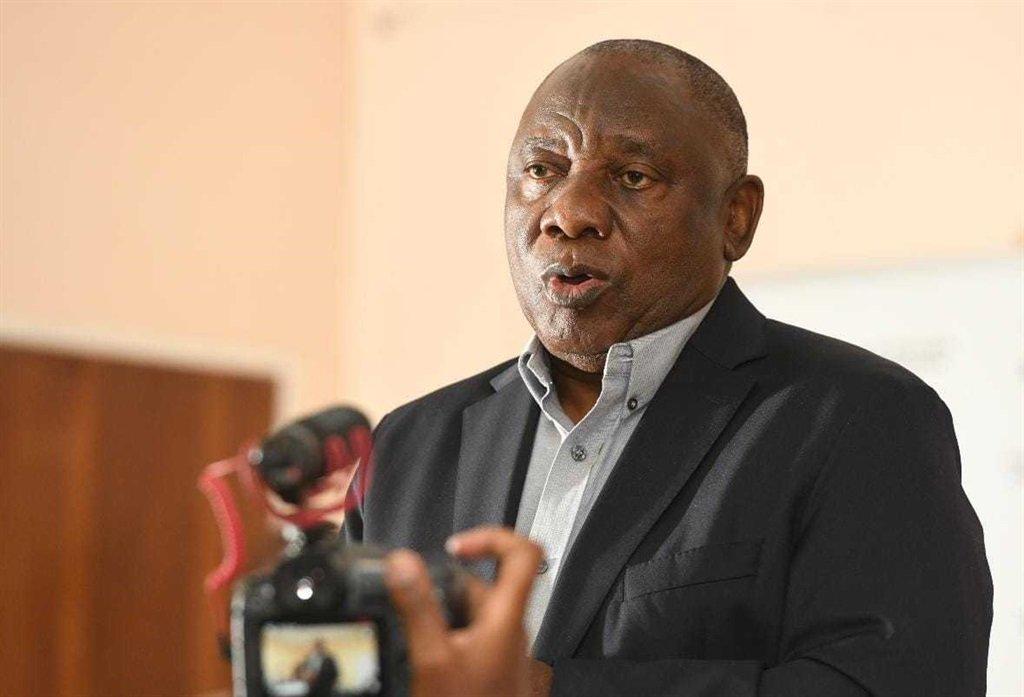Africa-Press – South-Africa. President Cyril Ramaphosa’s lawyers have told the Constitutional Court there is “no evidence” to back up a High Court finding that he suspended Public Protector Busisiwe Mkhwebane because she was investigating him over the Phala Phala break-in.
“On the contrary, the process giving rise to advocate Mkhwebane’s suspension had commenced on 18 March 2022, months before the events of 7 June 2022 [when Mkhwebane sent Ramaphosa 31 questions about the break-in],” assistant State Attorney Mark Owen stated in court papers.
On Friday, Western Cape High Court Judges Lister Nuku, Matthew Francis and James Lekhuleni ruled that Ramaphosa’s decision to suspend Mkhwebane – after she sent him questions about the break-in at his Phala Phala farm in Limpopo – was invalid and “improper”.
The judges based that finding on, among other things, the fact that Ramaphosa had suspended Mkhwebane the day after she publicly announced her Phala Phala investigation.
Ramaphosa is now seeking to appeal that ruling, with his lawyers arguing that he has “good prospects of success”.
Both the president and the DA argue that the full bench order that Ramaphosa’s suspension of Mkhwebane was invalid, needs to be confirmed by the apex court to become effective. But, in the event that this is not the case, Ramaphosa is bringing a conditional application for leave to appeal the ruling directly to the Constitutional Court.
In court papers, Owen stated that, should the conditional leave to appeal application be denied, “the President intends to pursue the appeal in the [Supreme Court of Appeal]”.
“This matter is urgent, given the Full Court’s finding that the suspension is unlawful,” Owen said in his argument for why the Constitutional Court should hear the case.
Owen said:
If Ramaphosa was required to seek to challenge the decision through the High Court, the Supreme Court of Appeal and ultimately the Constitutional Court, “it would result in considerable and unnecessary further delays”, Owen said.
The full bench’s ruling that the Public Protector was improperly suspended was based on the fact that, in the days leading up to his suspension of Mkhwebane, Ramaphosa would himself be consumed by the ongoing controversy over a February 2020 burglary at his Phala Phala game farm.
Owen, however, argued that there “was no evidence that the [Phala Phala] investigative process at the office of the Public Protector would be delayed on account of advocate Mkhwebane’s suspension” as the Deputy Public Protector would take over from her. Owen added that there was “uncontested evidence” that Ramaphosa was “co-operating fully in the investigation”.
The Phala Phala scandal imploded days before Ramaphosa suspended Mkhwebane.
On 1 June, Arthur Fraser, former director-general at the State Security Agency and former correctional services commissioner, opened a kidnapping and money laundering case against Ramaphosa, Presidential Protection Unit head Major General Wally Rhoode, and Crime Intelligence members for allegedly concealing the break-in.
According to Fraser’s affidavit, Ramaphosa had at least US$4 million in cash stashed in a couch at his game farm – and then played a part in a cover-up following an allegedly illegal investigation into the matter.
Mkhwebane’s earlier findings that Ramaphosa’s CR17 campaign for the ANC presidency was implicated in money laundering and state capture were invalidated by the courts.
Suspension
She had informed the president on 7 June that she was investigating him over Phala Phala. She also asked him to answer 31 questions about the break-in.
Two days before she was suspended, Mkhwebane sent Ramaphosa the 31 questions.
While the High Court appeared unconvinced by the bulk of Mkhwebane’s challenges to the impeachment process against her, it found that “from the objective facts, the decision of [Mkhwebane] to investigate the President and to put 31 questions to him, prompted the President not to wait a day more and to immediately suspend her”.
“Clearly, when the events that unfolded between 7 and 10 June 2022, discussed above, are objectively examined, it is irresistible to conclude that the decision of the President was improper.”
ALSO READ |
Ramaphosa called a ‘criminal’, ‘gangster’ as opposition demand release of Phala Phala report
Owen said this finding was marked by multiple errors and again argued that the process which led to Mkhwebane’s suspension had started long before she sent her Phala Phala questions to Ramaphosa.
He further argued that Mkhwebane had “raised no attack against or challenge to the President’s reasons for suspending her”.
“It follows from this that the reasons given by the President for the suspension of advocate Mkhwebane must be accepted as being both ‘plausible and logical’,” he added.
While the High Court was also clearly unhappy that Ramaphosa had suspended Mkhwebane the day before a separate full bench ruled on the Public Protector’s urgent bid to block him from doing so, Owen said the president had already issued the letter of suspension when the High Court alerted the parties in the case that it would issue the ruling.
The High Court appeared to have accepted that claim, but nonetheless found that “in our view, the hurried nature of the suspension of [Mkhwebane] in the circumstances, notwithstanding that a judgment of the full court was looming on the same subject matter, leads this court to an ineluctable conclusion that the suspension may have been retaliatory and, hence, unlawful”.
For More News And Analysis About South-Africa Follow Africa-Press






